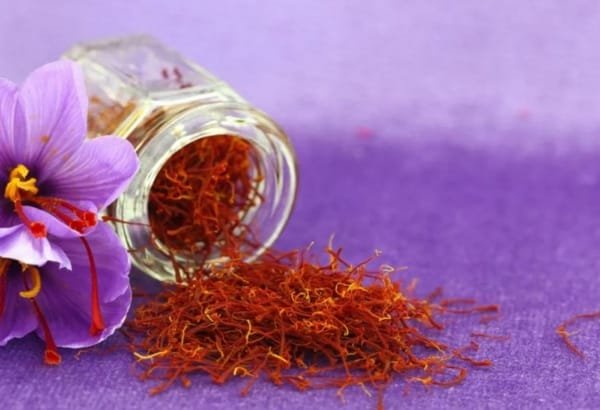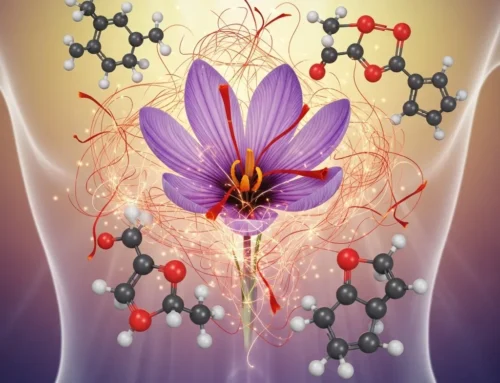 Saffron has long been cherished for its medicinal properties, especially for its positive effects on liver health. The liver plays a vital role in detoxifying the body and processing nutrients. However, it is vulnerable to diseases such as liver cancer, fatty liver, hepatitis, and cirrhosis. These conditions can result from genetic factors or environmental influences like obesity, smoking, and viral infections. Symptoms often include jaundice, pain, swelling, dark urine, fatigue, nausea, and loss of appetite.
Saffron has long been cherished for its medicinal properties, especially for its positive effects on liver health. The liver plays a vital role in detoxifying the body and processing nutrients. However, it is vulnerable to diseases such as liver cancer, fatty liver, hepatitis, and cirrhosis. These conditions can result from genetic factors or environmental influences like obesity, smoking, and viral infections. Symptoms often include jaundice, pain, swelling, dark urine, fatigue, nausea, and loss of appetite.
The Role of Saffron in Protecting the Liver
One of the most effective ways to prevent and treat liver diseases is through natural remedies without harmful side effects. Among these, saffron stands out as a powerful ally in supporting liver health. The active compounds in saffron—crocin, picrocrocin, and safranal—offer significant anti-cancer, anti-inflammatory, and antioxidant properties. These compounds give saffron its unique color, flavor, and aroma.
Moreover, saffron helps reduce cholesterol and fat levels. It acts as a soothing agent, aids digestion, and supports the immune system. By cleansing the liver, saffron also improves the function of other organs, such as the heart, brain, and skin. As a result, it serves as a natural detoxifier and protector of liver health.
Saffron and Liver Cancer Prevention
Liver cancer ranks as the fifth most common cancer worldwide. It often stems from hepatitis B and C, fatty liver disease, alcohol consumption, and exposure to carcinogens like DEN. However, saffron counters the harmful effects of such carcinogens and helps prevent liver cancer. Through its antioxidant properties, saffron protects liver cells from damage and strengthens cellular resistance to cancer.
Additionally, studies show that crocin, an active compound in saffron, plays a critical role in reducing the risk of liver cancer. Saffron helps the body resist cancer cells by inducing apoptosis (programmed cell death), eliminating damaged cells, and preventing uncontrolled cancer cell growth. This process limits the spread of cancerous cells.
Saffron’s Impact on Hepatitis and Cirrhosis
Furthermore, saffron contributes to the treatment of liver diseases like hepatitis and cirrhosis. Hepatitis causes liver inflammation, which can lead to serious complications if left untreated. Cirrhosis results in the gradual replacement of healthy liver tissue with scar tissue, impairing the liver’s function. As a potent anti-inflammatory, saffron helps reduce inflammation and prevents disease progression.
Saffron as a Treatment for Fatty Liver Disease
Fatty liver disease, marked by fat accumulation in liver cells, is one of the most common liver disorders. Saffron has shown promise in reducing symptoms by lowering cholesterol levels and decreasing fat buildup in the liver. Drinking saffron tea may help treat fatty liver disease, providing a natural solution for liver detoxification.
In addition to its anti-inflammatory properties, saffron promotes healthy liver function by improving blood circulation and boosting the body’s ability to eliminate toxins. Consequently, regular consumption of saffron can significantly reduce the risk of liver disease and improve overall liver health.
Scientific Research on Saffron’s Effectiveness
In an experimental study, researchers tested saffron’s impact on liver cancer using three groups of mice. After 22 weeks, the group receiving the highest dose of saffron (300 mg per day) showed no signs of cancer. These results demonstrate that saffron effectively protected against liver cancer. This suggests that saffron serves as a powerful shield for the liver, safeguarding it from various diseases.
Conclusion: Saffron for Liver Health
Ultimately, the liver plays a crucial role in filtering toxins and ensuring proper bodily function. Liver diseases such as cancer, fatty liver, hepatitis, and cirrhosis can interfere with this essential role. However, saffron offers a promising natural remedy for prevention and treatment. Its antioxidant, anti-inflammatory, and anti-cancer properties make it an excellent choice for supporting liver health. By including saffron in your diet, you can promote liver health and enjoy a disease-free life.
In conclusion, saffron proves to be an effective herbal remedy for liver health, offering protection against various liver diseases. Its antioxidant, anti-inflammatory, and anti-cancer properties make it an ideal choice for supporting liver function and preventing conditions like fatty liver and liver cancer. Moreover, regular consumption of saffron, along with a healthy lifestyle, can help maintain a healthy liver and overall well-being.







Get Social